Building a
Blood Cancer
Powerhouse
Sylvester Comprehensive Cancer Center is known for its expertise in many types of cancer, and hematologic malignancies are among the most challenging
By Ana Veciana-Suarez
Illustration by Eddie Guy

T
he patient came to Craig H. Moskowitz, M.D., with a disheartening diagnosis: Hodgkin’s lymphoma. But his decision to seek treatment at Sylvester Comprehensive Cancer Center at the University of Miami Miller School of Medicine proved prescient — and it probably saved his life.
“After we did a full workup, we found it wasn’t Hodgkin’s, but instead it was non-Hodgkin’s lymphoma,” said Dr. Moskowitz, physician-in-chief for the Oncology Service Line at Sylvester. “That was a significant difference, and it meant a change in treatment.”
The case underscores the importance of highly specialized expertise. Dr. Moskowitz happens to be one of the top lymphoma specialists in the world, an expert among experts in a subspecialty of a subspecialty. He’s also one of several world-renowned hematologic oncologists recruited by Sylvester Director Stephen D. Nimer, M.D., since his arrival at the center eight years ago.
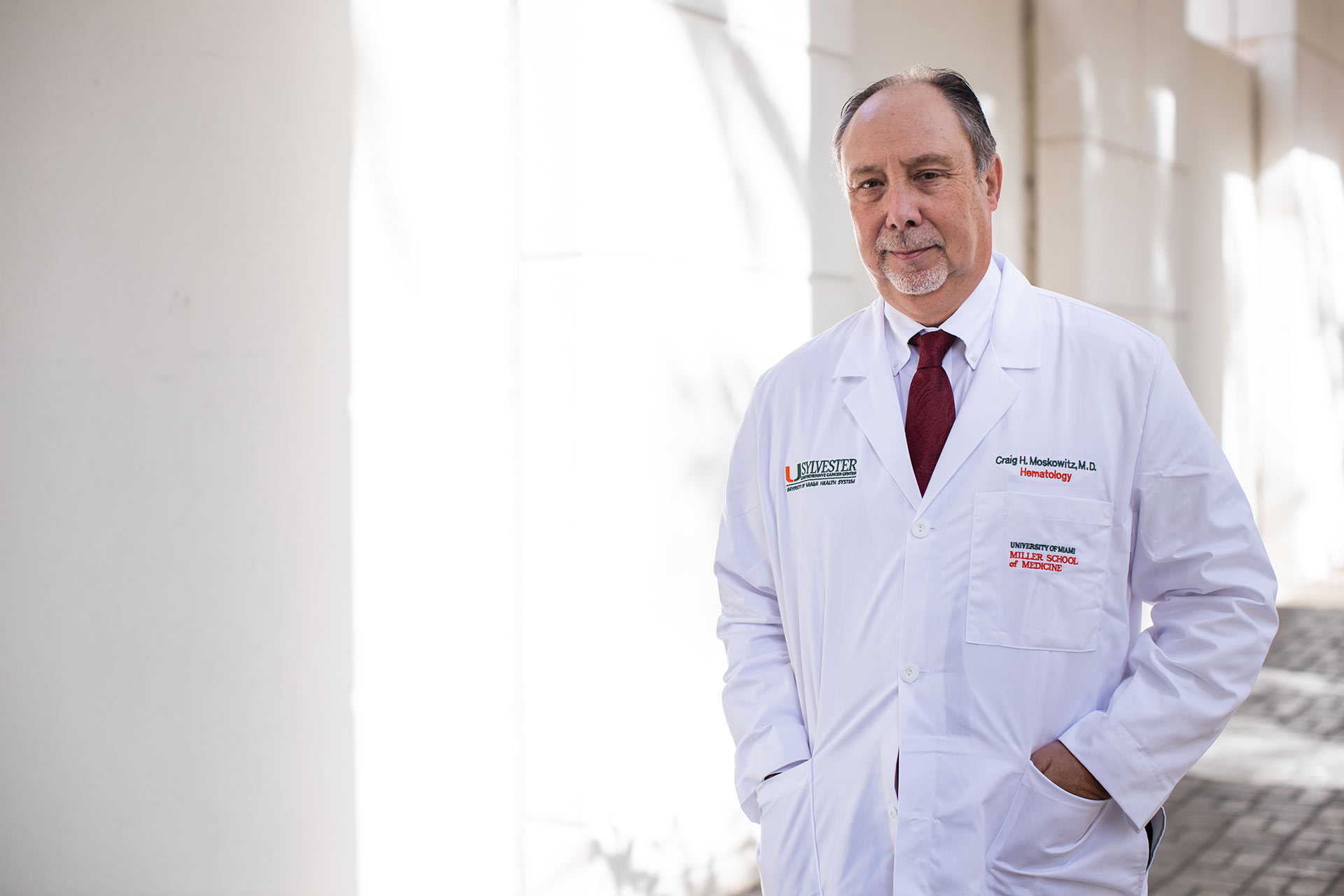
Craig H. Moskowitz, M.D.
Photograph by Clutch Content Partners.
Stephen D. Nimer M.D.
Photograph by Clutch Content Partners.
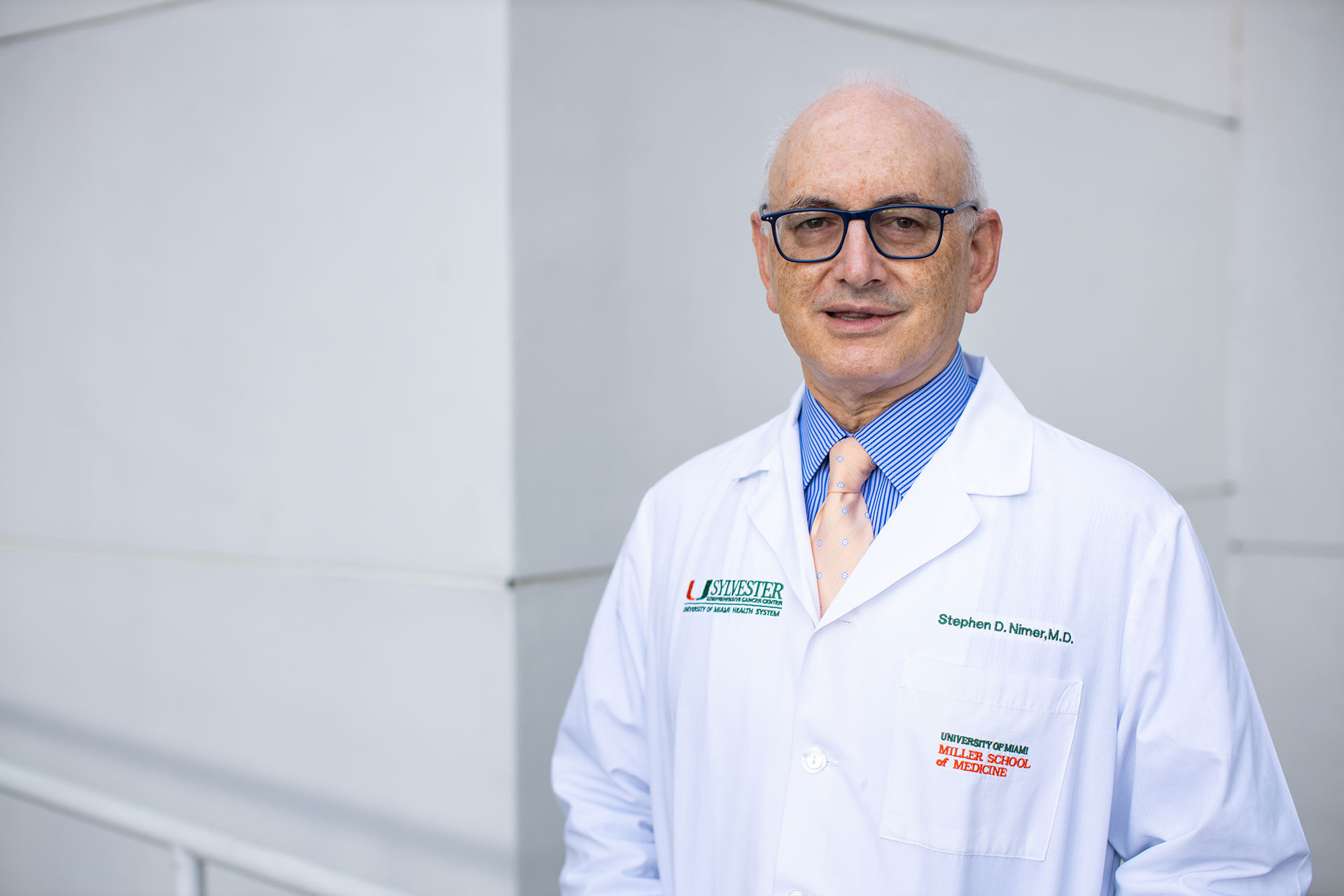
“It’s like many things in life, where a certain kind of expertise is needed,” said Dr. Nimer, inaugural holder of the Oscar de la Renta Endowed Chair in Cancer Research and a leukemia and lymphoma expert himself. “If you’re an expert historian, you’re expected to be an expert on a particular period of time, not just a general historian.”
This is particularly important in science, he added. “The speed of discoveries and advances makes it hard to keep up with everything,” Dr. Nimer said. “You have to go deep.”
Recruiting the best of the best
Dr. Nimer has slowly, methodically — scientist by scientist, physician by physician, clinical trial by clinical trial — built a blood cancer powerhouse. He’s recruited top-ranked specialists in leukemia, lymphoma, and myeloma as well as treatment pioneers in precision medicine. They’ve come from Memorial Sloan Kettering Cancer Center, Cleveland Clinic, and MD Anderson Cancer Center. And they’re forging a Center of Excellence working with an existing staff of professionals already primed for greatness.
Among those who have joined Sylvester, or will be coming in the next few months, are Mikkael Sekeres, M.D., M.S., director of the Leukemia Program and vice chair for clinical research at Cleveland Clinic in Ohio, and C. Ola Landgren, M.D., Ph.D., chief of the Myeloma Service at Memorial Sloan Kettering Cancer Center.
Mikkael Sekeres, M.D.
Photograph by Angelo Merendino.
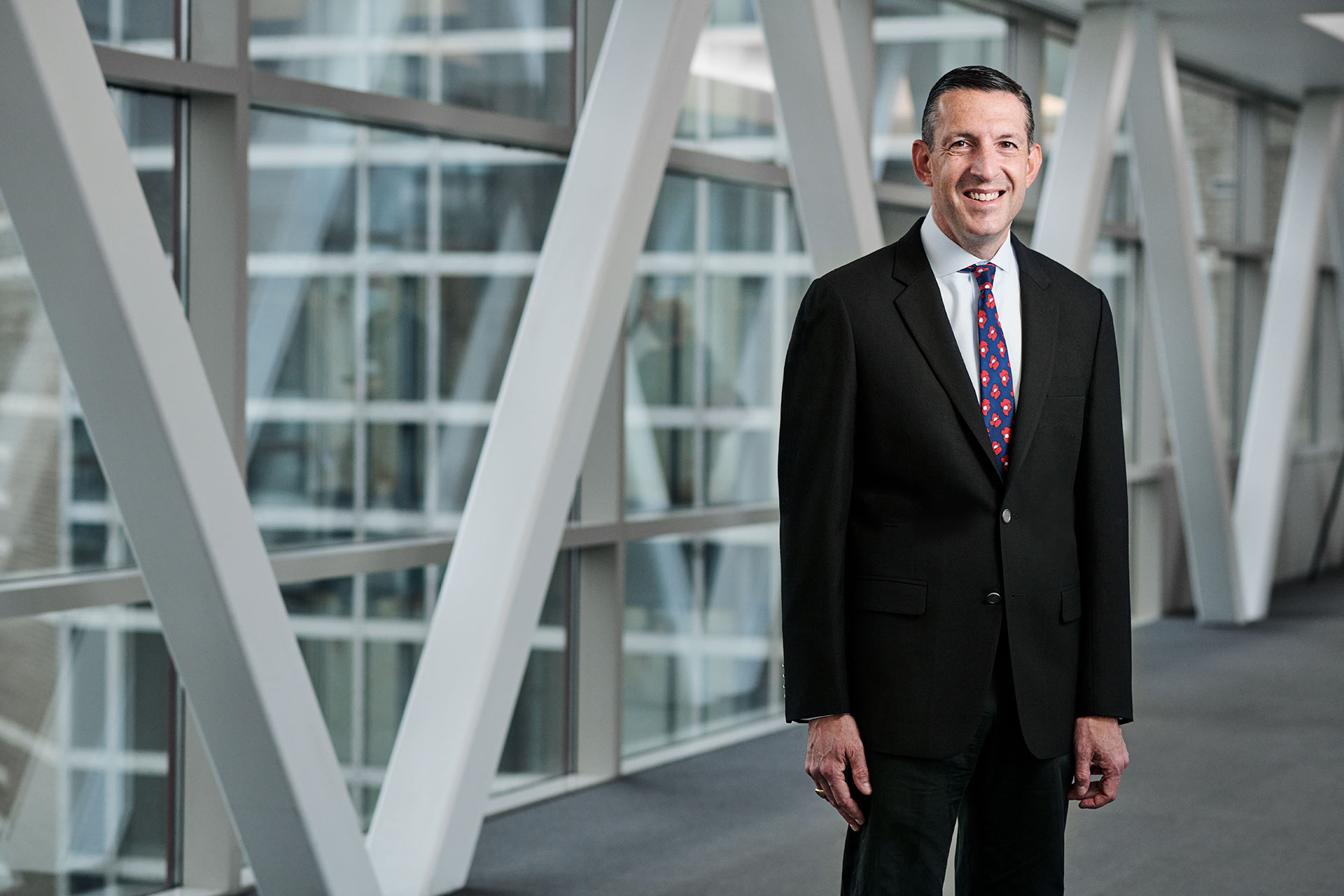
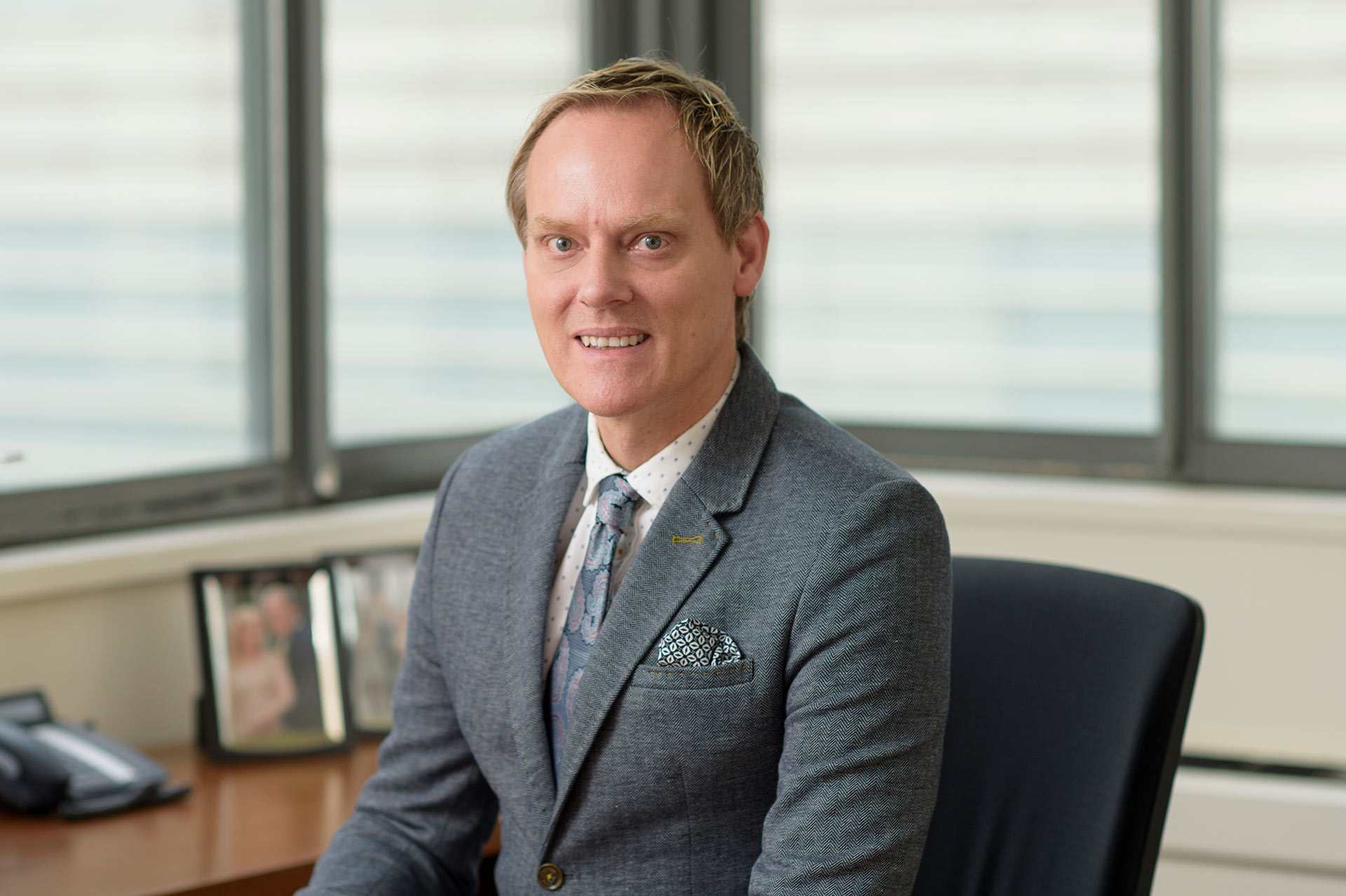
C. Ola Landgren, M.D.
“But it’s not just senior people,” Dr. Nimer was quick to add. “We also have outstanding junior researchers who want to come to Sylvester. People like a winner. They want to be part of something that is growing in its excellence and impact.”
Dr. Moskowitz shares this vision of building for the future.
“Young researchers want to be mentored,” he said. “They want to learn more, and we’ve created a pod of leaders who can mentor these junior researchers who are becoming leaders in their own right.”
Top-notch research physicians are essential to superb treatment outcomes, but physicians also need a support system to provide good care, according to Dr. Nimer. That’s why Sylvester, has invested millions of dollars in state-of-the-art, leading-edge laboratory equipment, and in innovative ideas and processes for the education and training of its staff. The hematologic oncologists, like their counterparts in other cancers, have also led practice-changing clinical trials, registered more patients — including patients from diverse backgrounds — in those trials, researched the most innovative therapies, and employed the most sophisticated imaging and diagnostic tests on the market.
Extending the reach of expertise
What’s more, Sylvester satellites have sprouted as far north as Deerfield Beach and as far south as Kendall, extending the reach of expertise and providing more geographic accessibility to patients beyond the main center near downtown Miami. Patients are coming from out of state, the Caribbean, and Latin America.
Dr. Moskowitz said Sylvester is increasingly a destination program for blood cancer treatment, especially the rarest kind.
“This is where you come to get answers,” he said.
Several factors have made this possible. In 2019, Sylvester was recognized as a top cancer center when it received the highly prestigious National Cancer Institute designation. It’s one of only 71 such centers in the country and the only one in South Florida. The designation was especially impressive because NCI had just raised the bar on its requirements. The recognition by the esteemed institute validated Sylvester’s research, care, and community engagement.
Additionally, the designation has translated into more money — $10.5 million in funding from the NCI over five years and about $1 million annually from the state for cancer research. It also has served as an essential recruitment tool. In fact, the then-pending NCI designation was one factor in Dr. Moskowitz’s decision to come to UM in 2018. The designation signaled an abiding commitment to excellence in scientific research and offering patients the latest, most-promising therapies.
“We are definitely in an upward trajectory, and that was important for me,” Dr. Moskowitz said.
The designation was also significant for Dr. Sekeres, who’s joining Sylvester in January as chief of the Division of Hematology. A self-professed “fan” of Sylvester’s recent accomplishments, he saw the NCI seal of approval as public proof of the center’s recent achievements.
“Dr. Nimer is a charismatic leader who has a plan — a vision,” Dr. Sekeres said. “It’s hard not to be impressed with what he has accomplished.”
How top talent attracts donors
If prestige attracts top talent, it may also beget philanthropy. In September, Sylvester received an anonymous gift of $126 million, the single largest in UM history. Dr. Nimer called it transformational, as it will enable the growth and pursuit of excellence that characterizes the cancer center. The gift is also triggering significant matching donations — more than $20 million to date. These funds allow the center to expand research and continue recruiting top-notch scientists like Dr. Landgren.
A luminary in multiple myeloma research, Dr. Landgren will lead the new Experimental Therapeutics Program at Sylvester, which seeks to advance research into novel therapies and accelerate discoveries from the lab to the bedside by working across various disciplines, refining preclinical models, and supporting early laboratory discoveries, among other efforts. Dr. Landgren calls the new program a unique research environment where the patient will be the one to benefit, as practice-changing clinical trials result in newer, better therapies.
“For me, it is a unique opportunity to both deepen and broaden the type of work I have done for many years,” said Dr. Landgren, who will also head Sylvester’s Myeloma Program. “Our ongoing work focusing on genomic characterization of tumor cells and cells in the tumor microenvironment is already at the forefront, and we will keep on pushing the envelope. Fueled by Dr. Nimer’s visionary leadership, we will continue our discovery work, and we will translate our findings into the clinic to improve patient outcomes.”
The Experimental Therapeutics Program — the cancer center’s most recent blood cancer initiative — is far from Sylvester’s only groundbreaking work in the field. Under the guidance of Krishna Komanduri, M.D., Sylvester has become one of the fastest-growing programs in stem cell transplant and cellular therapy procedures for treating patients with the most intractable blood cancers.
“We’ve dramatically expanded access to autologous and allogeneic transplants and cellular therapies, which is having a huge impact for our patients,” said Dr. Komanduri, who came to Sylvester in 2008, in part for the promise of expanding the stem cell therapy program. “We’ve really grown the program from the ground up. We have increased from doing fewer than 50 transplants a year to more than 250 during my tenure here.”
Krishna Komanduri, M.D.
Photograph by Clutch Content Partners.
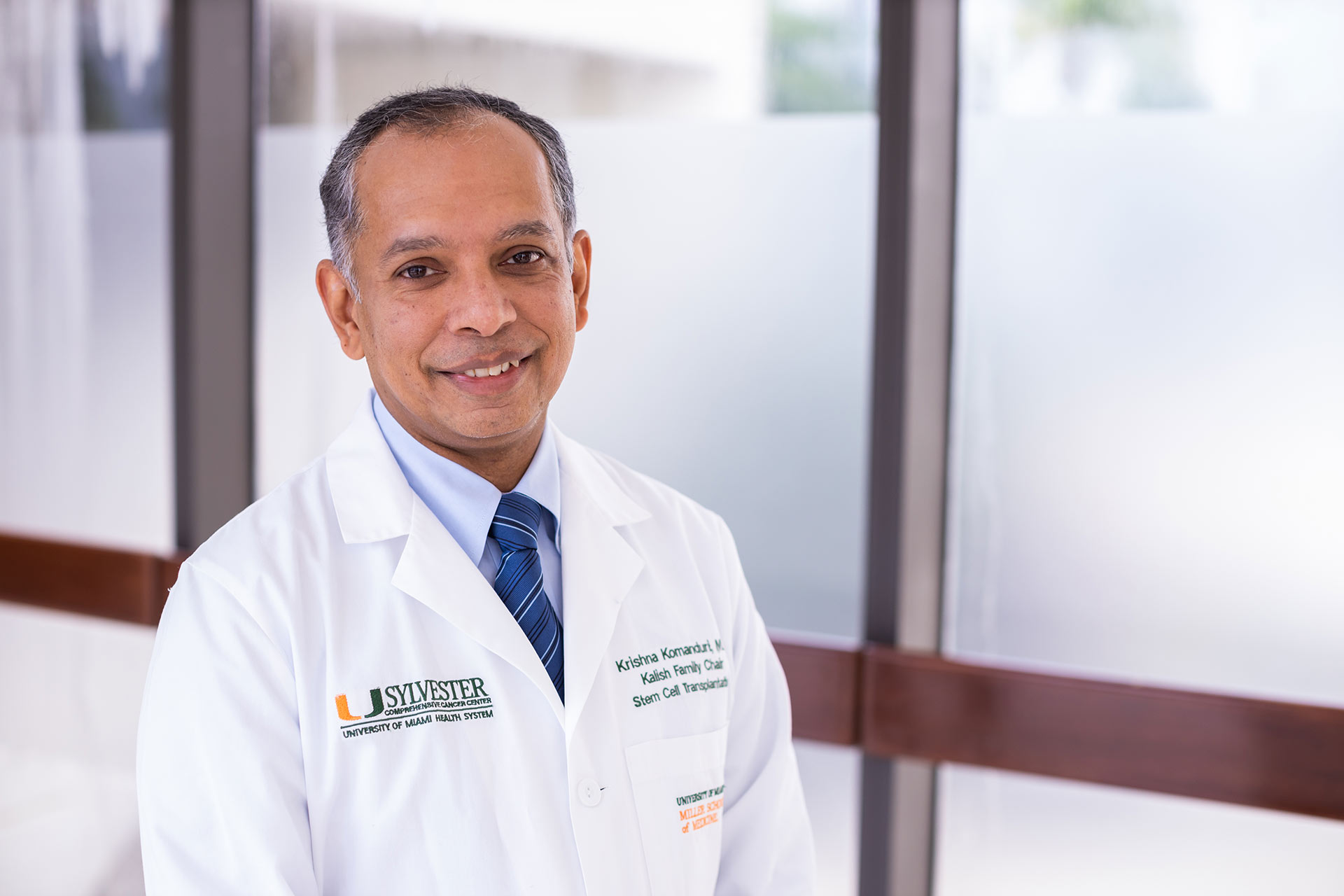
The promise of CAR-T therapy
Dr. Komanduri and his team are also leaders in a revolutionary type of immunotherapy known as chimeric antigen receptor T-cell therapy, or CAR-T therapy. In CAR-T therapy, physicians take the patient’s T cells — a type of white blood cell that plays a critical role in the body’s immune system — and genetically modify the cells in the lab. Once the modified T cells are put back in the patient’s body, they’re better able to find and kill the cancer cells. CAR-T therapy holds great promise because it can succeed where more traditional treatments have failed.
The therapy was approved in 2017 for adults with relapsed large B-cell lymphoma and children and young adults with acute lymphoblastic leukemia. Sylvester was among the top centers completing the most procedures during the initial clinical trial leading up to the therapy’s approval. To this day, Dr. Komanduri and his colleagues continue clinical trials to test this and other novel cellular immunotherapies for a broad range of blood cancers.
The multidisciplinary stem cell transplant group has grown to include 65 members — from physicians to social workers to nurse practitioners. Dr. Komanduri has also shepherded the team to outstanding clinical outcomes.
“We are one of very few centers in the country where one-year survival rates for patients receiving transplants from donors are significantly better than expected, relative to national norms,” he said.
Like his colleagues, Dr. Komanduri can claim an impressive professional pedigree. He has been president of the American Society for Transplantation and Cellular Therapy (ASTCT) and has served as co-chair of the Infection and Immune Reconstitution Working Committee for the Center for International Blood and Marrow Transplant Research. He has also chaired the Immunology and Host Defense Scientific Committee for the American Society of Hematology.
Beyond the leading-edge treatments and superb clinical outcomes, Dr. Komanduri is most pleased with the confidence shown in the stem cell transplant program by former patients and referring physicians.
“We receive phenomenal expressions of gratitude,” he said. “I think that speaks for itself.”
Sylvester’s focus on patients stands out
The focus on patient care is a common thread among Sylvester oncologists. During his recruitment process, Dr. Sekeres was especially taken by Sylvester’s culture.
“They’re absolutely dedicated to their patients,” he said. “Everything is in place — the infrastructure, the support for care and clinical trials, the quality of the doctors. And especially the focus on patients.”
Like Dr. Sekeres, other Sylvester oncologists believe there’s something special — an intangible ingredient — that bonds the blood cancer team.
“The best thing about Sylvester is the collegiality,” Dr. Moskowitz said. “We have respect for everyone. We all have a mission. We want the place to get better and better.”
This dedication to patients has led to advancements throughout the cancer center — such as the building of a highly specialized sarcoma program led by one of the nation’s top experts, Jonathan C. Trent, M.D., Ph.D., who came from MD Anderson Cancer Center and is associate director for clinical research at Sylvester. The Miller School’s Department of Radiation Oncology recently added many new faculty members and unveiled the new, state-of-the-art Dwoskin Proton Therapy Center, named for a benefactor. Expert teams are now able to use this highly precise radiation therapy modality to enhance patient care.
Early this year, four exemplary medical oncologists who were well-established in the community joined Sylvester and helped open the Aventura outpatient site. Among them was renowned melanoma expert Jose Lutzky, M.D., who directs clinical research services and leads Sylvester’s Cutaneous Oncology Program.
Dr. Nimer believes part of his role as its director is to create an environment that allows people at all levels to thrive. He plans to continue doing this by bringing in the best of the best and giving them the resources to investigate, create, and treat.
“You give them what they need to be successful and build on that,” he said. “In the end, success breeds success.”![]()
Support Sylvester’s quest to eradicate cancer today.


